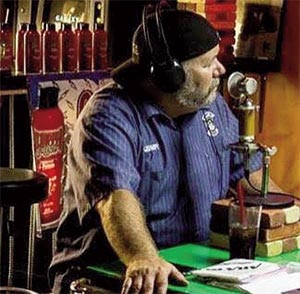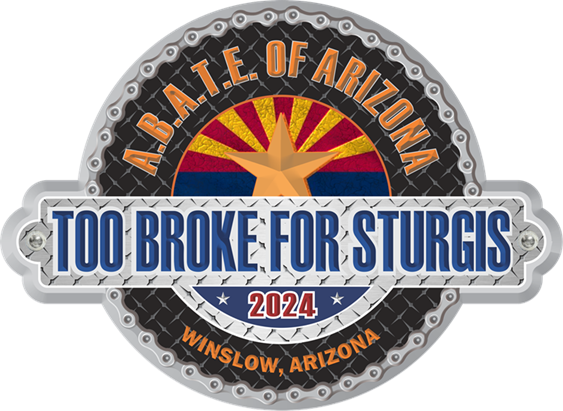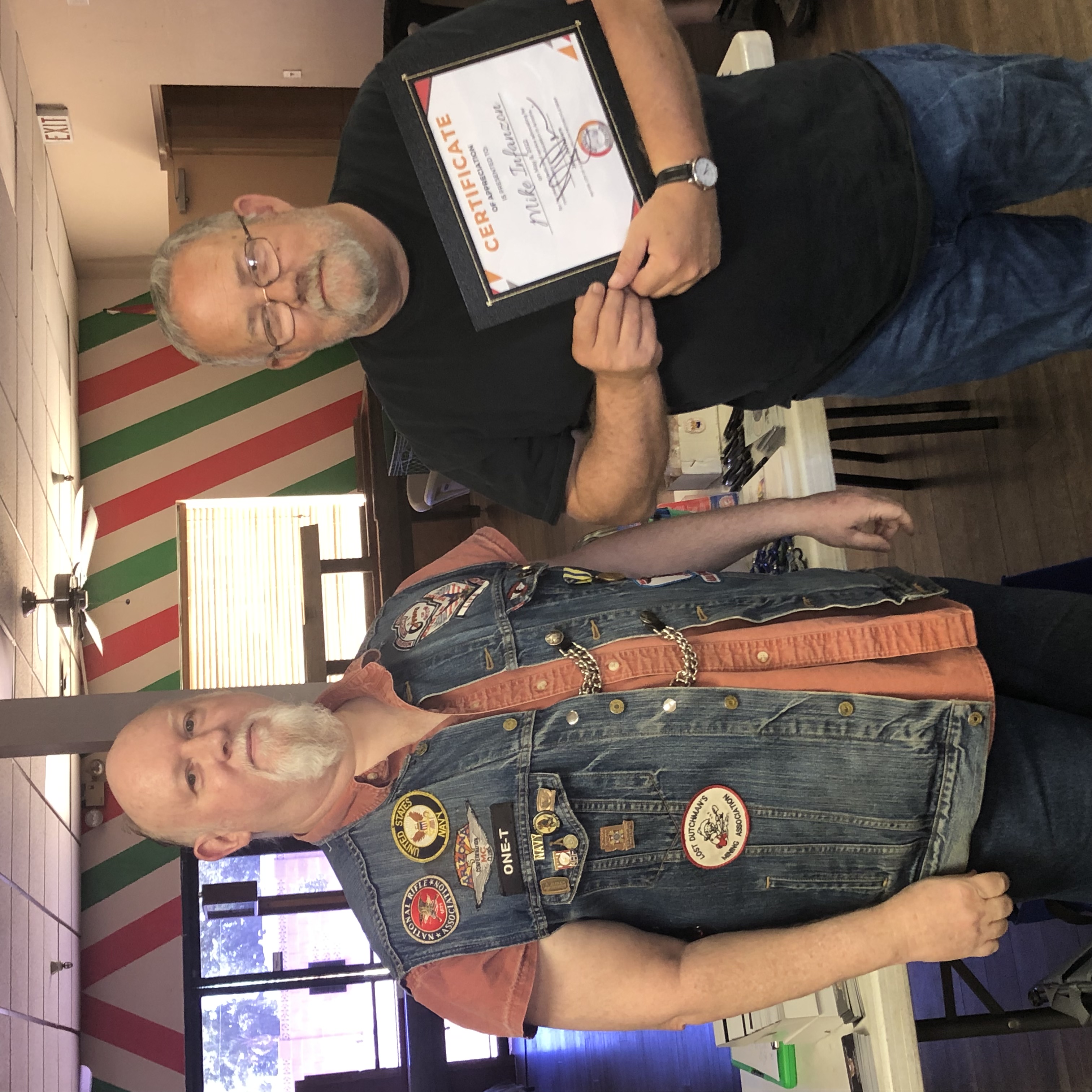
There was a tremendous amount of bills we tracked this session. Some had minor implications on the motorcycle community, some were just for information purposes only. Will and I refined down all the bills to these that were most impactful and lined up with the legislative priorities set by the membership last year
Grading was done simply by how a legislator voted on the final floor vote. We gave a bonus point if they were the prime sponsor of the bill and a half bonus point if they were a co-sponsor. Bonus points are used to determine the
Legislative Freedom Fighter awards.
2021 Legislative AwardsLegislative Freedom Fighter – Rep. Shawnna
Bolick (LD20)
House of Representatives – Rep. Leo
Biasiucci (LD5)
Senate – Senator David Gowan (LD14)
Honorable MentionsRep. Ben Toma (LD22) and Senator Sonny
Borelli (LD5).
This is the second year in a row that
Representative Bolick has won our Freedom Fighter award and the second year for Senator Borelli also as an Honorable Mention.
You can read the scored bills below and see
the entire scorecard inside the Masterlink on page 7
H2110 (Chapter 288) CIVIL PENALTIES; TRAFFIC; MITIGATION; RESTITUTIONIf a "monetary obligation" (defined) is
imposed on a person at sentencing, the court is authorized to order the person to perform community restitution in lieu of the payment of the monetary obligation. The court is required to credit any community restitution
performed at a rate equal to the state minimum wage, rounded up to the nearest dollar. AS SIGNED BY GOVERNOR
H2115 (Chapter 235) MOTORCYCLE
SAFETY FUND; CONTINUATIONThe Department of Transportation is required to deposit $1 of each motorcycle registration fee collected in the Motorcycle Safety Fund through June 30, 2025, instead of through June 30, 2021. AS SIGNED BY GOVERNOR
H2329 (Chapter 27) AIR QUALITY;
OMNIBUSModifies the Area A and Area B vehicle emissions standards testing requirements for motor vehicles. The list of exemptions from vehicle emissions inspection requirements is expanded
to include cranes and oversize vehicles that require permits, and vehicles that are not in use and that are owned by Arizona residents while on active military duty outside of Arizona. These provisions do not become effective unless on or before July 1, 2023 the
U.S. Environmental Protection Agency
approves the proposed modifications to the vehicle emissions testing program protocols as part of the State Implementation Plan for air quality. The Department of Environmental Quality (DEQ) is required to operate and
administer a voluntary vehicle repair and retrofit program in areas that are subject to the vehicle emissions inspection program, instead of a county with a population of more than 400,000 persons being required to operate the
program in that county. Retrofit program
requirements are modified. DEQ is authorized to conduct research to quantify the effects of vehicular emissions, instead of being required
to conduct research to quantify the effect of alternative fuels on toxic components of vehicular emissions. Also repeals the Voluntary Vehicle Repair and Retrofit Program Advisory Committee. AS SIGNED BY GOVERNOR
H2810 (Chapter 327) CIVIL
ASSET FORFEITURE; CONVICTION; PROCEDURESThe list of property subject to seizure and
forfeiture is modified to require the proceeds to be traceable to an offense that
resulted in a criminal conviction. Property
is subject to forfeiture only if the owner
is convicted of an offense to which forfeiture applies and the state establishes by
clear and convincing evidence that the
property is subject to forfeiture. The state
is prohibited from proceeding with further forfeiture proceedings before a criminal conviction for an offense to which
forfeiture applies unless no timely claims
for the seized property were filed or the
court waived the conviction requirement.
After a person is convicted of an offense
for which forfeiture applies, the court
may order the person to forfeit property
acquired through the commission of the
offense, property directly traceable to
property acquired through the commission of the offense, and property the person used in the commission of the offense
or to facilitate the offense. Establishes
circumstances under which the court is
allowed to waive the conviction requirement. Does not prevent property from
being forfeited by the terms of a plea
agreement. A person who claims to be an
innocent owner has the burden of production to show that the person either held a
legal right, title or interest in the property
seized at the time the illegal conduct
occurred, or acquired as a bona fide purchaser a legal right, title or interest in the
property after the commission of the
crime. All property seized by a law
enforcement agency at any time must be
returned to the owner, if known, within
ten business days after the property's
seizure unless the owner has been arrested and charged with a criminal offense
subject to forfeiture, the property is
sought to be used as evidence, it is illegal
for the owner to possess the property, or
the property was seized for forfeiture.
Within 60 days after making a seizure for
forfeiture, the state is required to file a
notice of pending forfeiture proceeding or
return the property to the person from
whom it was seized. Establishes requirements for serving the notice of pending
forfeiture. Allows an owner of the property to file a claim against the property at
any time within 60 days after the notice
or 60 days before a criminal trial,
whichever is later. Beginning August 28,
2024, the Attorney General is prohibited
from using monies from the AntiRacketeering Revolving Fund to pay
salaries for full-time equivalent positions.
Statutes governing various forfeiture proceedings are repealed and replaced. AS
SIGNED BY GOVERNOR. In his signing statement, the Governor stated that
this legislation balances personal rights and property with ensuring law enforcement has the tools necessary to protect the state.
S1127 VEHICLE SPEED LIMITSThe definition of excessive speeding, a
class 3 (lowest) misdemeanor would have
been modified to include exceeding the
posted speed limit by more than 20 miles
per hour, instead of exceeding 85 miles
per hour. If the maximum speed limit on
a public highway in Arizona was 30 miles
per hour in an area that is outside of an
"urbanized area" (defined elsewhere in
statute), or 40 miles per hour in an urbanized area, a person would have been prohibited from driving a motor vehicle at a
speed in excess of the posted speed limit
on that highway. If the speed at which the
person was alleged to have driven or the
speed at which the court finds the person
drove was not more than 10 miles per
hour in excess of the posted speed limit,
the offense would have been allowed to
be designated as a waste of a finite
resource and as a civil traffic violation. If
the speed at which the person was alleged
to have driven or the speed at which the
court finds the person drove was more
than 10 miles per hour in excess of the
posted speed limit, the offense would
have been designated as a civil traffic
violation. AS VETOED BY GOVERNOR. In his veto message, the Governor
stated that his priority is passing a budget,
and that he does not intend to sign any
additional bills until that happens.
Mike InfanzonLegislative Director










 There was a tremendous amount of bills we tracked this session. Some had minor implications on the motorcycle community, some were just for information purposes only. Will and I refined down all the bills to these that were most impactful and lined up with the legislative priorities set by the membership last year
There was a tremendous amount of bills we tracked this session. Some had minor implications on the motorcycle community, some were just for information purposes only. Will and I refined down all the bills to these that were most impactful and lined up with the legislative priorities set by the membership last year